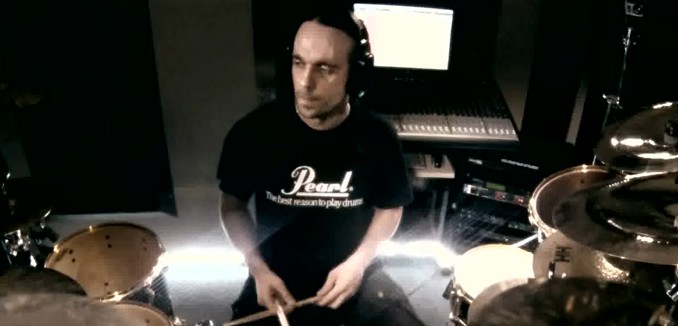Supporters of the Boycott, Divestment, and Sanctions (BDS) movement are routinely threatening artists who are set to perform in Israel, with a number of entertainers saying that the harassment has led them to fear for their lives, Ynet reported on Monday.
Patrick Losinski, the producer of the Titans of Metal Festival, which is scheduled to perform in Tel Aviv next month, revealed that BDS activists have already threatened a number of the festival’s musicians, and that four participants said the disturbing messages left them “truly fearing for their lives.” Losinski pointed out that BDS has no presence in Israel and more than 100 acts have performed in the Jewish state over the past five years.
Many major artists, including Alicia Keys, The Rolling Stones, Lady Gaga, and Bon Jovi, have traveled to Israel in recent years, despite the efforts of boycott activists. Typically, when an entertainer announces plans to perform in the Jewish state, BDS supporters will try to pressure them to cancel the trip by making a public appeal. If a prominent artist is involved, they may receive an open letter from former Pink Floyd frontman and anti-Israel activist Roger Waters. The performers are then sent private emails with more threatening overtones.
Eagles of Death Metal, the band that was performing at the Bataclan Theater in Paris when ISIS-linked terrorists attacked the venue earlier this month, played in Israel this past summer, despite demands by BDS supporters to cancel the show. The lead singer of the band, Jesse Hughes, said he rejected Waters’ pleas not to perform in the Jewish state, telling him “F– you.”
Anti-Israel activists have long been accused of harassing and intimidating artists. Two years ago, reports surfaced that former Beatle and rock legend Sir Paul McCartney faced death threats for performing in Tel Aviv. Around the same time, former Animals frontman Eric Burdon cancelled his concert after BDS supporters bombarded him with “threatening emails” on a daily basis. Burdon later reconsidered his decision and went ahead with the scheduled performance.
Notably, Burdon’s case exposed a central aspect of the BDS strategy. While Burdon’s manager explained that the temporary cancellation was driven by security concerns, it was initially attributed to the singer’s supposed disapproval of Israeli policies. This impression was conveyed by New York Times columnist Thomas Friedman, who linked Burdon’s announcement to criticism of the Israeli government, despite the fact that neither Burdon nor his manager ever gave any indication that the singer held such views.
The same strategy was evident in 2010, after The Pixies cancelled their Tel Aviv show in a move that BDS activists widely perceived as support for their cause. However, the band issued no statement regarding any ideological motivation behind their decision, and in fact went on to perform in Israel last year.
This past August, BDS supporters made headlines when Jewish American reggae singer Matisyahu was singled out and disinvited from a Spanish music festival after he refused demands to issue a public statement in support of a Palestinian state. The controversy generated by the discrimination prompted the organizers to restore his invitation.
Many critics of the BDS movement have accused it of being anti-Semitic in tone and intention, and pointed out that its leaders have publicly affirmed that they seek Israel’s destruction. BDS co-founder Omar Barghouti, a hardline opponent of the two state solution, said in 2014 that Palestinians have a right to “resistance by any means, including armed resistance,” while leading activist As’ad Abu Khalil acknowledged in 2012 that “the real aim of BDS is to bring down the state of Israel.”
[Photo: gkdrummer / YouTube ]




